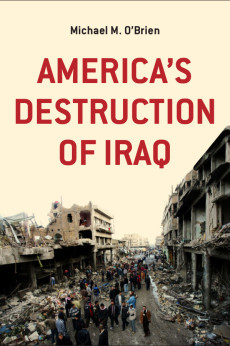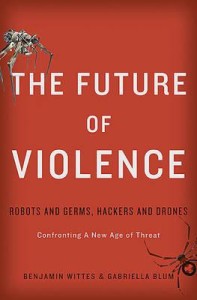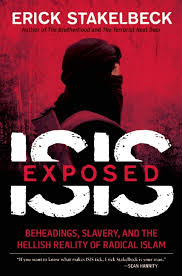The Rise of Islamic State, written by senior Middle Eastern correspondent Patrick Cockburn, explores the origins of history’s most successful terrorist group and the unfolding of US and the West’s greatest foreign policy debacle. In military operations, by mid 2014 they had outreached Al Qaeda, taking territory that reached across borders and included the city of Mosul. The reports of their military power and brutality to their victims continue to shock and intimidate the West. Out of the failures of Iraq and Afghanistan, the Arab Spring and Syria, a weakened Al-Qaeda has allowed for new jihadi movements, especially Islamic State.
Praise for the book has been widespread: “Quite simply, the best Western journalist at work in Iraq today.” Seymour Hersh “His dispatches from Iraq are an exemplary untangling of the political and social complexity that lies behind one of the world’s great crises. He writes fairly, compassionately and clearly, with a steady and knowledgeable eye.” Orwell Prize “One of the most accurate and intrepid journalists in Iraq.” Sidney Blumenthal “Authoritative.” Washington Post.
The Guardian newspaper asked why, “if people like Cockburn could see what was happening, did western security officials, analysts and editors miss it? Probably because, as The Rise of Islamic State explains, western policymakers have shown little but wishful thinking and inconsistency in dealing with the conflict in Syria or the supposed peace in Iraq for several years. Of all the many mistakes Cockburn says were made by both the rebels and their foreign backers since 2011, it was the belief that President Assad was going to be swiftly defeated that was the most serious. As late as 2012, foreign governments and journalists were speculating where al-Assad might choose for exile, despite holding, at the time, every one of Syria’s 14 provincial capitals. Since then al-Assad has lost just one, Raqqa, to the Islamic State. As for Iraq, no one wanted to believe how badly things were going. And with few journalists on the ground, internet rumour and the statements of interested politicians were all anyone had to go on.”
Cockburn describes the civil war in Syria as “a Middle Eastern version of the 30 years war in Germany of the 17th century. All sides exaggerate their own strength and imagine that temporary success on the battlefield will open the way to total victory”. He refers to the “politics of the last atrocity”. The outcome probably rests with the US, Russia, Saudi Arabia and Iran, he says, all of whom have different interests and objectives.
The Guardian records: “One of the major themes that emerges from Cockburn’s account is the role of states in the whole appalling story. Islamic militant groups are usually described as non-state actors. But as The Rise of Islamic State makes clear, this is far from true. Everybody now seems to have some kind of involvement in this fight, which may have killed more than 200,000 people, and no one has a realistic idea of how to end it.”
“The war on terror for which civil liberties have been curtailed and hundreds of billions of dollars spent has failed miserably… because it did not target the jihadi movement as a whole and, above all, was not aimed at Saudi Arabia and Pakistan, the two countries that fostered jihadism as a creed and as a movement.”
Cockburn adds elsewhere that no Saudi citizen had been charged with supporting terrorism abroad since 9/11, adding that “a reason for waterboarding Al-Qaeda suspects was to extract confessions implicating Iraq rather than Saudi Arabia.”
Writing for the blog The Register’s bookworm Mark Diston says “Cockburn astutely compares the situation in Iraq and Syria to The Thirty Years War in seventeenth century Europe. The schisms, the ultraviolence, the ignorance and bigotry of the religiously deranged… The Rise of Islamic State is an important and revealing book which is essential reading to those who wish to dig deeper than the headlines and the soundbites.”




